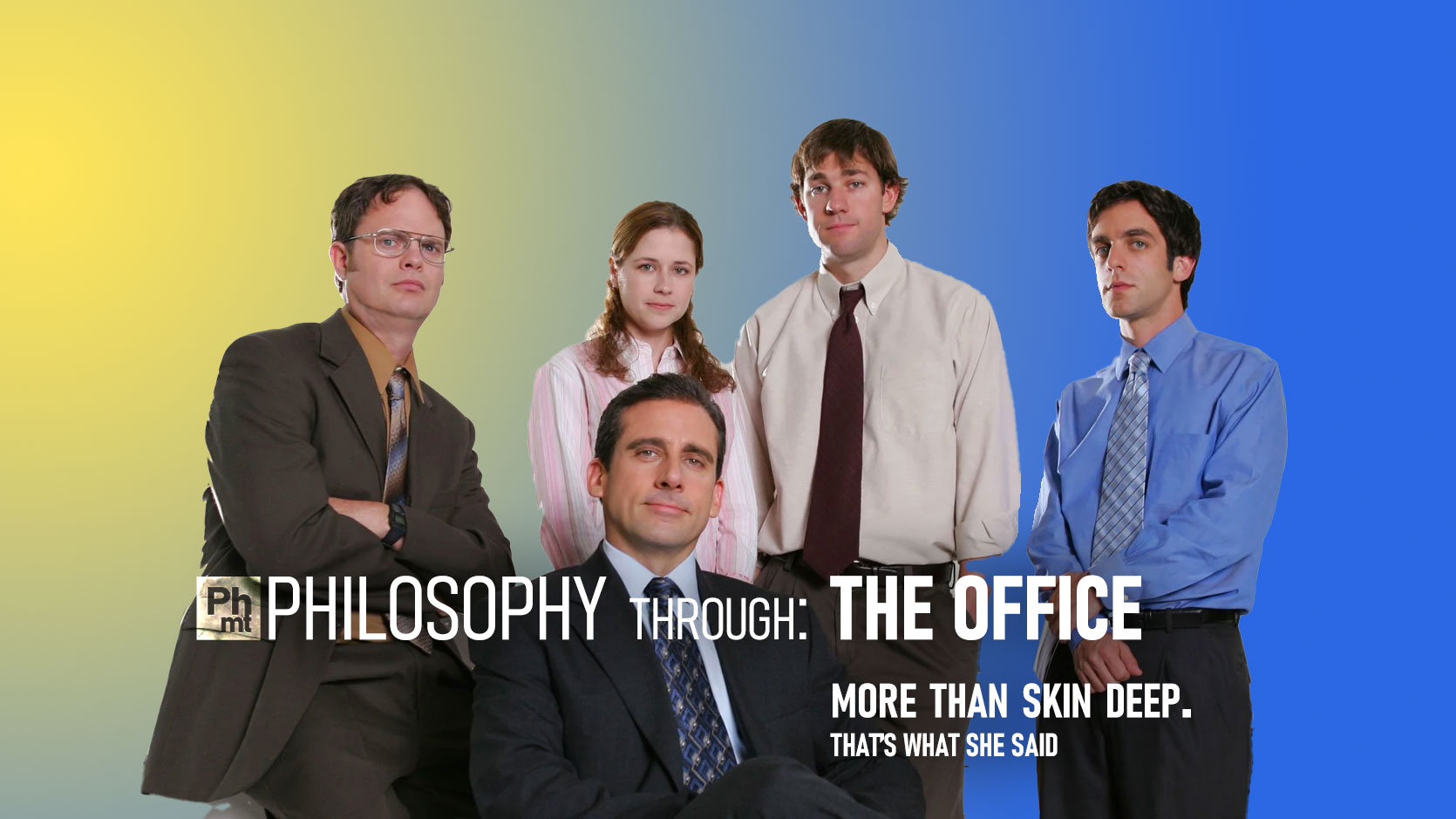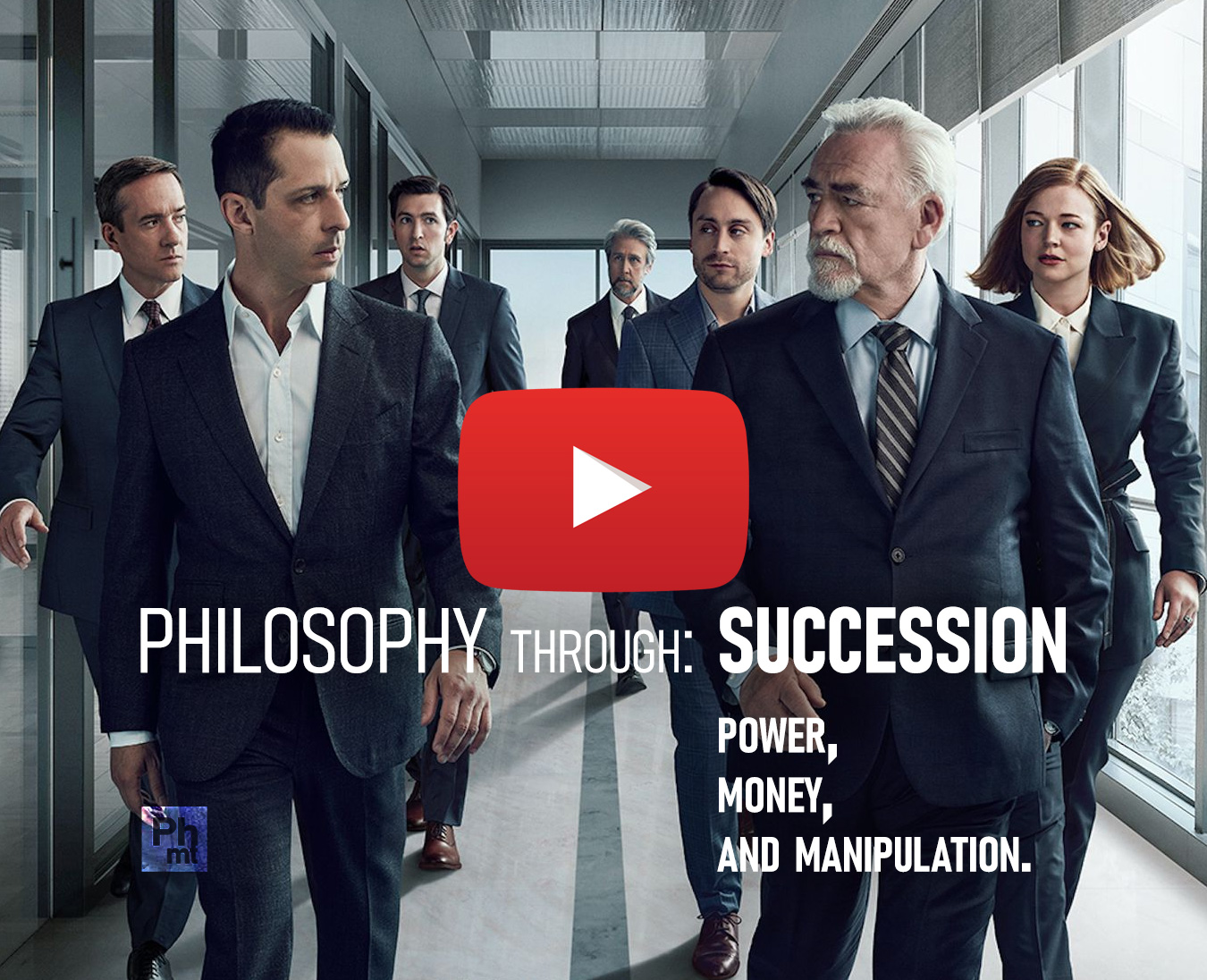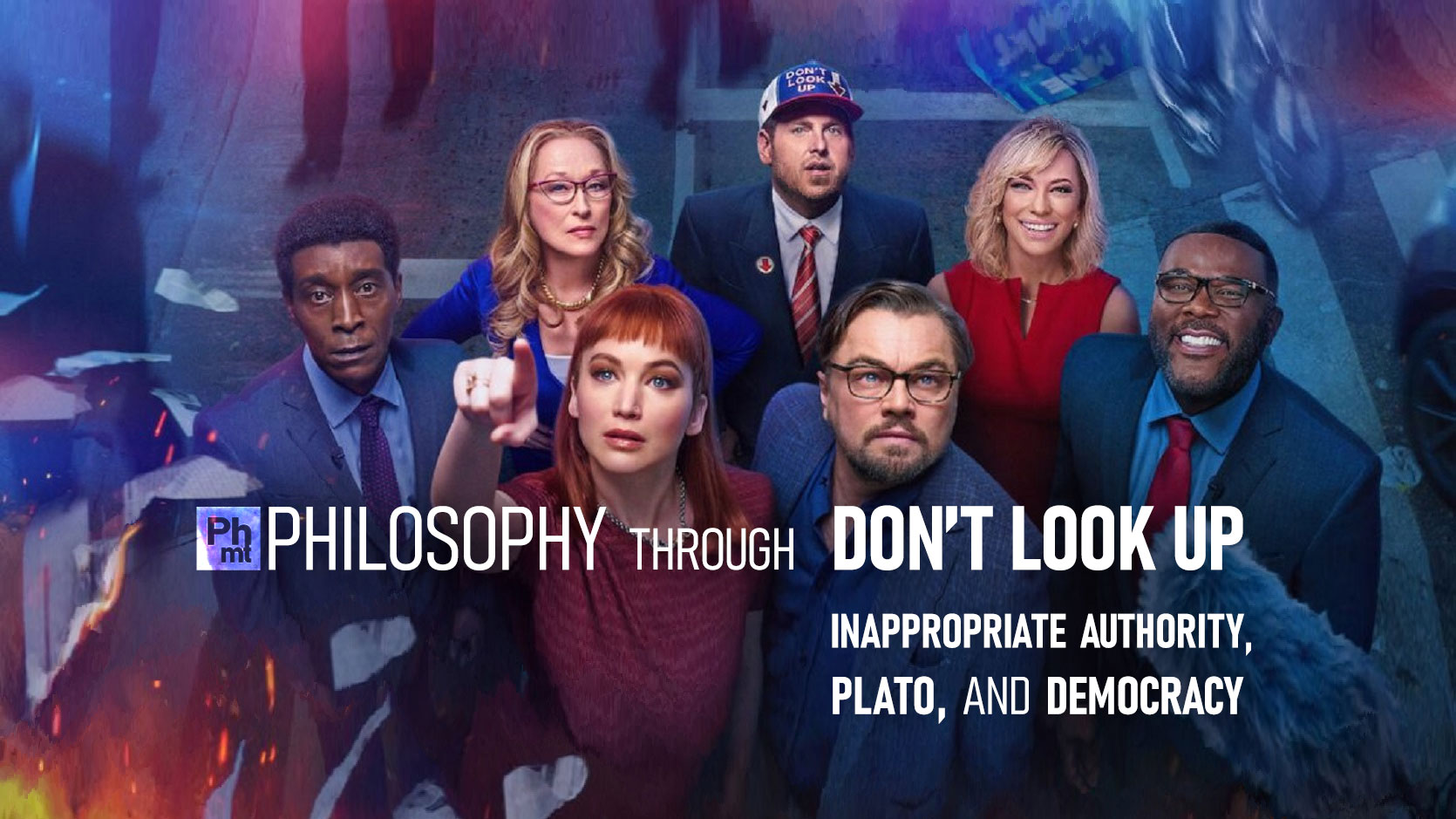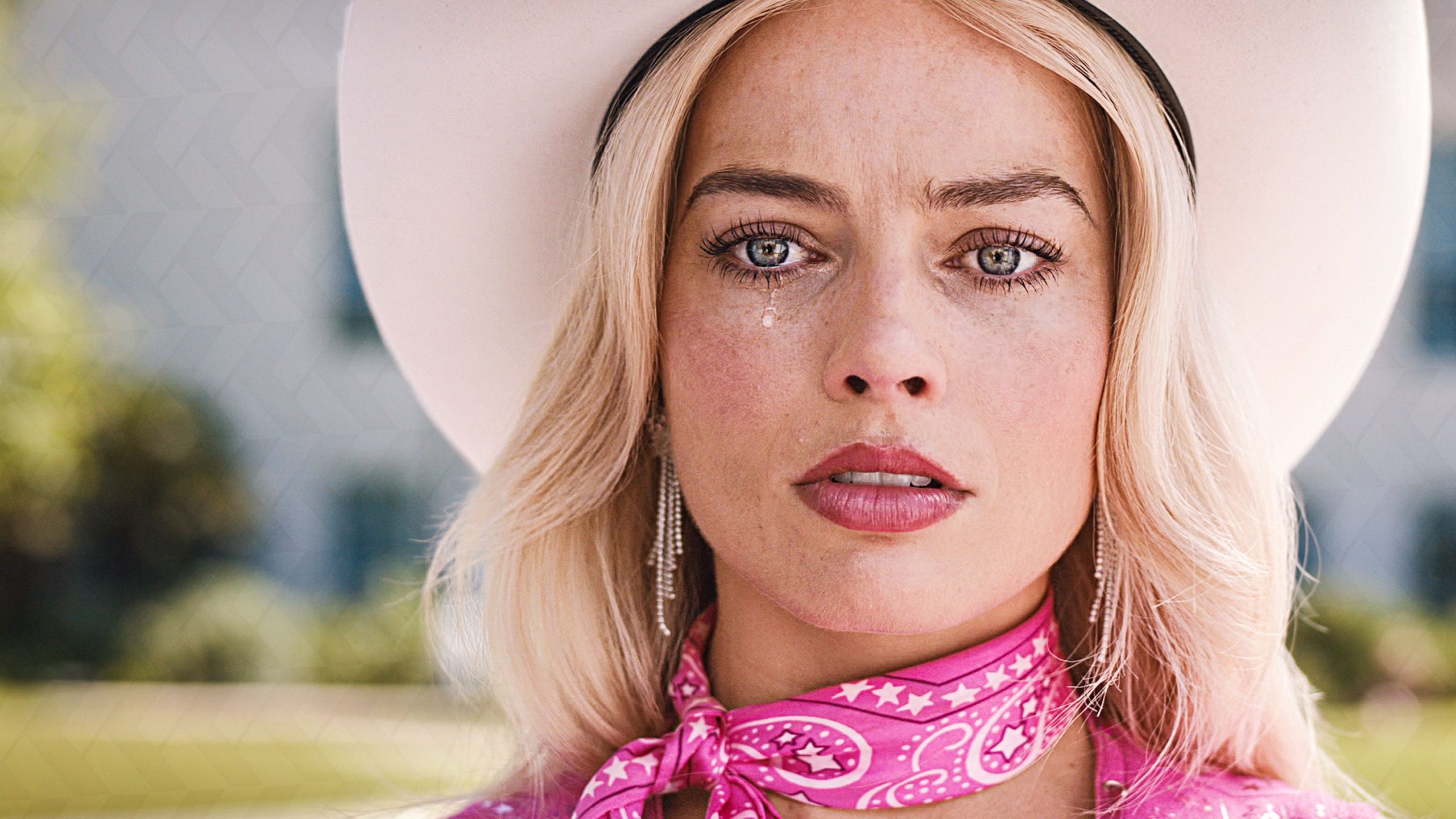Philosophy through ‘The Office’
Go deeper. (That’s what she said.)
I. Introduction: Venturing into The Office’s Philosophical Underpinnings
“The Office” is a highly acclaimed television series that first aired in the UK in 2001 and was later adapted into a successful US version in 2005. It has become an iconic representation of office life, filled with comical characters and awkward situations. Despite its lighthearted tone, the show offers ample opportunity to uncover deeper philosophical themes. This post aims to delve into the philosophical undercurrents of the series, bringing complex ideas to the surface and making them accessible to a general audience.
To achieve this goal, we will explore a range of philosophical concepts, such as the Absurd, social hierarchy, ethics, and humour, demonstrating how they are interwoven within the show’s narrative. By doing so, we hope to illuminate the ways in which “The Office” transcends the mundane and embraces a rich, philosophical landscape that resonates with viewers.
Throughout this exploration, we will provide historical and biographical context, as well as insights into the various schools of thought behind the concepts presented. We will also offer counterarguments and address potential criticisms of the ideas discussed. This comprehensive approach will allow readers to engage with these philosophical themes on a deeper level, fostering a greater understanding of their relevance to the world of “The Office” and beyond.
II. The Absurdity of Existence: Camus and The Office
Albert Camus, a French philosopher and writer, introduced the concept of the Absurd to examine the dissonance between human desire for meaning and the inherently chaotic nature of the universe. According to Camus, the Absurd arises when individuals search for purpose in a world that offers no inherent meaning, leading to feelings of existential despair.
In “The Office”, the Absurd is evident through the characters’ mundane lives, repetitive tasks, and constant yearning for something more. Their pursuit of meaning in a seemingly meaningless environment echoes the central themes of Camus’ philosophy. For instance, Jim Halpert’s longing for a more fulfilling career and his unrequited love for Pam Beesly serve as potent examples of the Absurd.
Moreover, Michael Scott, the bumbling regional manager, embodies the Absurd through his attempts to create a family-like atmosphere in the workplace. He strives for a sense of belonging and purpose, yet his actions often result in awkwardness and disarray, further highlighting the Absurd nature of existence.
However, the idea of the Absurd in “The Office” is not without criticism. Some may argue that the characters ultimately find meaning in their relationships and personal growth, suggesting that the show’s portrayal of the Absurd may be incomplete or overstated. In this view, the series could be seen as more of a commentary on the human ability to overcome existential despair, rather than an endorsement of the Absurd.
Despite these criticisms, Camus’ concept of the Absurd provides a valuable lens through which to examine the underlying philosophical themes in “The Office”. It encourages viewers to question the meaning and purpose of their own lives, and to consider the ways in which they, too, may confront the Absurd in their everyday existence.
III. Social Hierarchy: Hegel’s Master-Slave Dialectic in the Workplace
Georg Wilhelm Friedrich Hegel, a German philosopher, developed the concept of the Master-Slave Dialectic to explore the dynamics of power and recognition between individuals. According to Hegel, individuals seek recognition from others, which creates a struggle for dominance. This struggle results in a hierarchical relationship, where one person assumes the role of the master, while the other becomes the slave. The master enjoys power and control, while the slave works to satisfy the master’s needs. However, Hegel argues that the relationship is unstable, as the master’s sense of self depends on the recognition provided by the slave, ultimately undermining the master’s authority.
In “The Office”, the Master-Slave Dialectic is evident in the power dynamics between the characters. Michael Scott, as regional manager, occupies the role of the master, while his employees assume the position of the slave. Michael seeks validation and recognition from his subordinates, often enforcing his authority through managerial decisions and policies. However, his dependence on their recognition for self-worth exposes the fragile nature of his power.
Additionally, the series explores the instability of the Master-Slave Dialectic through the character of Dwight Schrute, who strives to assert dominance over his peers. His efforts often backfire, reinforcing the idea that the struggle for recognition is inherently unstable and prone to shifting power dynamics.
Critics of applying Hegel’s Master-Slave Dialectic to “The Office” may argue that the show’s focus on comedy and interpersonal relationships detracts from the philosophical implications of the concept. They might contend that the series simplifies the complexities of the dialectic, reducing it to mere office politics and humorous situations.
Nevertheless, the Master-Slave Dialectic offers a thought-provoking lens through which to examine the power dynamics and social hierarchies present in “The Office”. By identifying the ways in which characters struggle for recognition and dominance, viewers gain a deeper understanding of the philosophical roots of the series, while also reflecting on their own relationships and experiences in the workplace.
IV. The Veil of Ignorance: Rawlsian Ethics in The Office
John Rawls, an American philosopher, introduced the concept of the Veil of Ignorance as part of his theory of justice. Rawls proposed a hypothetical scenario in which individuals, unaware of their own social status, skills, or personal traits, would design the rules for a fair society. By being ignorant of their own circumstances, individuals would create a just society, as they would be unbiased towards any particular social group.
“The Office” presents various ethical dilemmas and decisions that can be examined through the lens of Rawls’ Veil of Ignorance. For example, the series explores issues of fairness and equity in the workplace, such as promotions, raises, and disciplinary actions. Characters often face difficult decisions that require them to consider the well-being of their co-workers, as well as their own self-interest.
One notable example is Jim’s promotion to co-regional manager, which creates tension between him and Michael. By applying the Veil of Ignorance, Jim and Michael would need to consider the fairness of the promotion without the knowledge of their own positions, leading them to evaluate the decision based on the merits of the candidate rather than personal biases.
However, applying Rawlsian ethics to “The Office” is not without its challenges. Critics might argue that the show’s comedic nature and focus on individual character arcs make it difficult to fully explore the complexities of ethical decision-making. Furthermore, the hypothetical nature of the Veil of Ignorance may be seen as an impractical framework for understanding real-world ethical dilemmas.
Despite these concerns, Rawls’ Veil of Ignorance offers a unique perspective on the ethical issues present in “The Office”. By considering the choices and actions of the characters through this theoretical lens, viewers can gain a deeper understanding of the moral complexities that underlie the seemingly mundane world of the workplace, and reflect on their own ethical decision-making processes.
V. The Office and the Philosophy of Humour
To explore the philosophical dimensions of humour in “The Office”, we can examine three main theories: Superiority, Relief, and Incongruity. The Superiority Theory, proposed by thinkers such as Plato and Aristotle, posits that humour arises from feelings of superiority over others. The Relief Theory, championed by Sigmund Freud, suggests that humour is a means of releasing psychological tension. Lastly, the Incongruity Theory, supported by Immanuel Kant and Arthur Schopenhauer, argues that humour is the result of a clash between expectations and reality.
“The Office” skilfully utilises these theories to create comedy, while simultaneously conveying philosophical ideas. The Superiority Theory is evident in the series’ portrayal of Michael Scott, whose ineptitude often provides a source of amusement for both his employees and viewers. This highlights the human tendency to find humour in the flaws and shortcomings of others.
The Relief Theory can be observed in the show’s frequent use of awkward situations to create tension, which is then alleviated through humour. This approach allows viewers to experience a sense of relief from the characters’ uncomfortable predicaments, while also encouraging reflection on the nature of human interaction and social norms.
The Incongruity Theory is exemplified by the show’s use of unexpected and absurd scenarios to generate laughter. By presenting viewers with situations that defy their expectations, “The Office” invites them to question the nature of reality and the assumptions that underlie their perceptions.
Despite the insights offered by these theories, there may be objections to their applicability to “The Office”. Critics might argue that the show’s humour relies primarily on character-driven comedy and situational humour, rather than exploring deeper philosophical questions. They may also contend that the series’ comedic elements detract from, rather than enrich, its philosophical content.
Nonetheless, examining “The Office” through the lens of these humour theories reveals the ways in which the series intertwines comedy with philosophical thought. By incorporating elements of Superiority, Relief, and Incongruity, “The Office” not only entertains viewers but also encourages them to engage with complex philosophical ideas, enriching their experience of the show.
VI. Relevance and Further Reading: Delving Deeper into The Office’s Philosophical World
Throughout our exploration of “The Office”, we have uncovered a rich array of philosophical themes, from the Absurd to social hierarchy, ethics, and humour. These concepts not only enhance our understanding of the series but also provide insights into the human condition and contemporary society.
The philosophical ideas present in “The Office” remain relevant today, as they prompt us to reflect on our own lives, relationships, and societal structures. By engaging with these themes, we can better understand the complexities of the world around us and navigate the challenges that we face in our everyday lives.
For those interested in further exploring the philosophical aspects of “The Office”, there is a wealth of material available. Key philosophical texts, such as Camus’ “The Myth of Sisyphus”, Hegel’s “Phenomenology of Spirit”, and Rawls’ “A Theory of Justice”, provide a solid foundation for understanding the concepts discussed in this post. Additionally, relevant articles and essays on the philosophy of “The Office” offer more focused analysis and insights into the series’ philosophical roots.
Beyond “The Office”, other TV series and films incorporate philosophical themes that invite further exploration, some of which we will tackle in this series of PhilosophyMT’s Philosophy Through. Engaging with these works can deepen our appreciation of the ways in which philosophy permeates our culture and enriches our understanding of the world.
By examining “The Office” through a philosophical lens, we have uncovered a deeper layer of meaning beneath the show’s comedic surface. This journey into the series’ philosophical world not only enhances our enjoyment of “The Office” but also fosters a greater appreciation for the ways in which philosophy can illuminate the complexities of our everyday lives.



